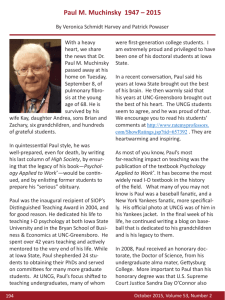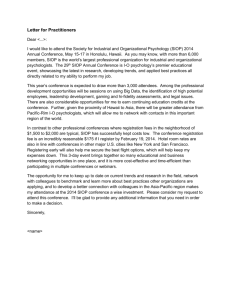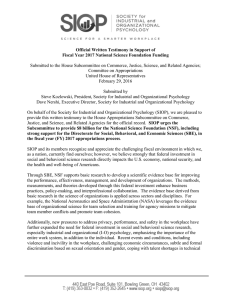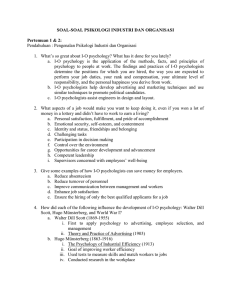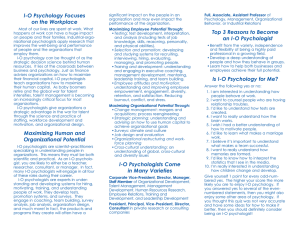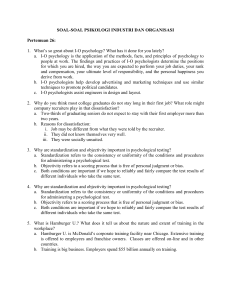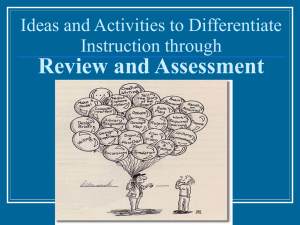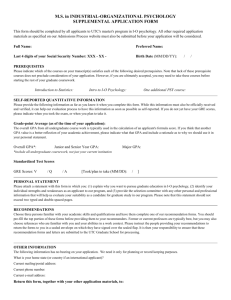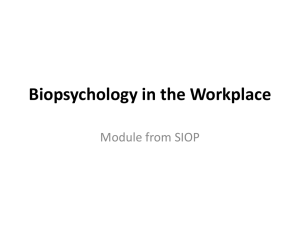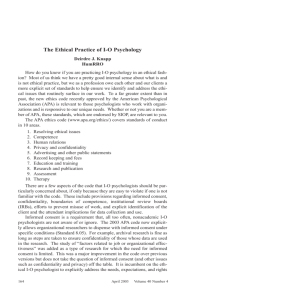Psychology at Work
advertisement
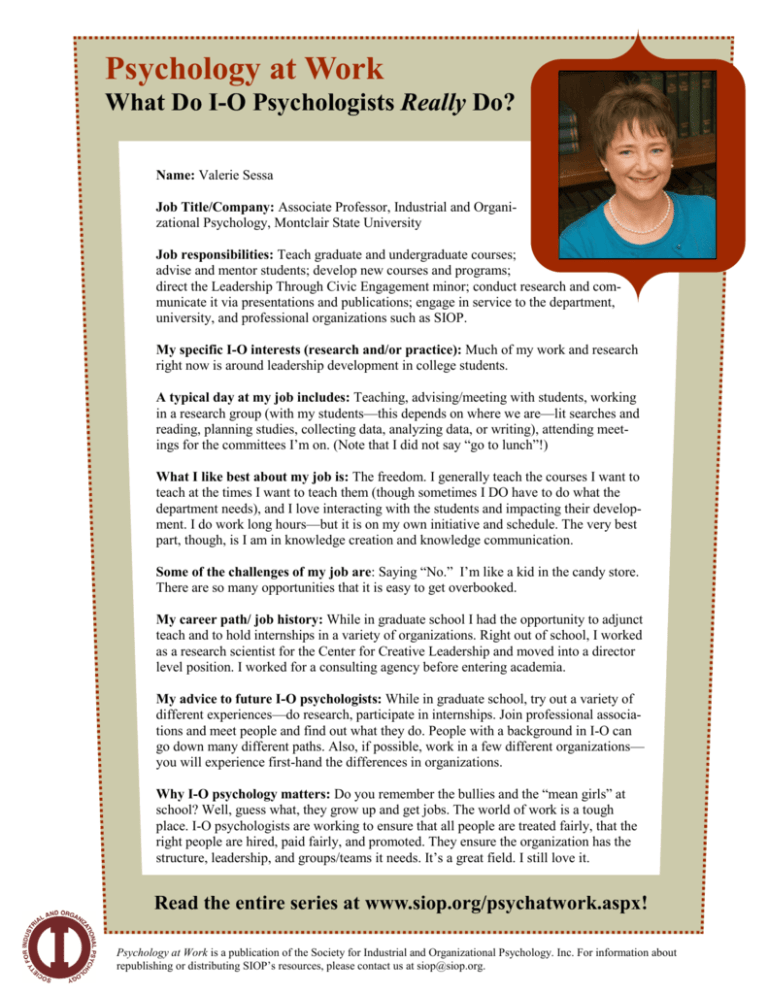
Psychology at Work What Do I-O Psychologists Really Do? Name: Valerie Sessa Job Title/Company: Associate Professor, Industrial and Organizational Psychology, Montclair State University Job responsibilities: Teach graduate and undergraduate courses; advise and mentor students; develop new courses and programs; direct the Leadership Through Civic Engagement minor; conduct research and communicate it via presentations and publications; engage in service to the department, university, and professional organizations such as SIOP. My specific I-O interests (research and/or practice): Much of my work and research right now is around leadership development in college students. A typical day at my job includes: Teaching, advising/meeting with students, working in a research group (with my students—this depends on where we are—lit searches and reading, planning studies, collecting data, analyzing data, or writing), attending meetings for the committees I’m on. (Note that I did not say “go to lunch”!) What I like best about my job is: The freedom. I generally teach the courses I want to teach at the times I want to teach them (though sometimes I DO have to do what the department needs), and I love interacting with the students and impacting their development. I do work long hours—but it is on my own initiative and schedule. The very best part, though, is I am in knowledge creation and knowledge communication. Some of the challenges of my job are: Saying “No.” I’m like a kid in the candy store. There are so many opportunities that it is easy to get overbooked. My career path/ job history: While in graduate school I had the opportunity to adjunct teach and to hold internships in a variety of organizations. Right out of school, I worked as a research scientist for the Center for Creative Leadership and moved into a director level position. I worked for a consulting agency before entering academia. My advice to future I-O psychologists: While in graduate school, try out a variety of different experiences—do research, participate in internships. Join professional associations and meet people and find out what they do. People with a background in I-O can go down many different paths. Also, if possible, work in a few different organizations— you will experience first-hand the differences in organizations. Why I-O psychology matters: Do you remember the bullies and the “mean girls” at school? Well, guess what, they grow up and get jobs. The world of work is a tough place. I-O psychologists are working to ensure that all people are treated fairly, that the right people are hired, paid fairly, and promoted. They ensure the organization has the structure, leadership, and groups/teams it needs. It’s a great field. I still love it. Read the entire series at www.siop.org/psychatwork.aspx! Psychology at Work is a publication of the Society for Industrial and Organizational Psychology. Inc. For information about republishing or distributing SIOP’s resources, please contact us at siop@siop.org.
